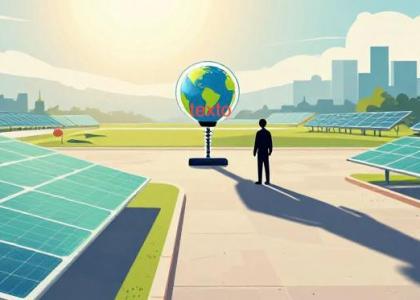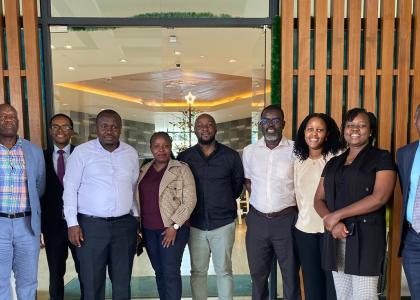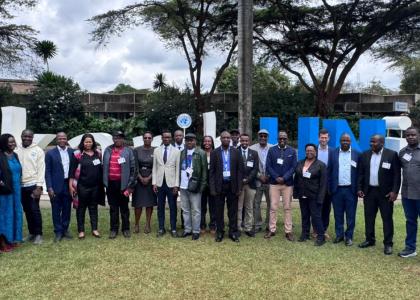Praia, Cabo Verde, November 4th 2018 - The President of the ECOWAS Commission, Jean – Claude Brou payed his first official visit to Cabo Verde as the Head of the ECOWAS Commission. The president concluded his three-day visit and also took advantage to meet with the Executive Director of the ECOWAS Centre for Renewable Energy and Energy Efficiency (ECREEE), Mahama Kappiah.
The President of the ECOWAS Commission payed his first official visit to Cabo Verde, in the framework of working closely with the Member States in achieving regional goals through close collaboration and coordinated effort.
ECOWAS sees regional integration as the most viable and appropriate tool for achieving and accelerating sustainable development. For that purpose, Mr. Brou held meetings with the uppermost representatives of Cabo Verde, such as the President of the Republic of Cabo Verde, H.E. Jorge Carlos Fonseca, as well with the President of the National Assembly, the Vice-Prime Minister, the Governor of the Bank of Cabo Verde and other high-level figures.
The visit provided and opportunity for both sides to seek common ground for collaboration and to merge efforts in many different sectors and explore areas in which ECOWAS can have a strong presence and a big impact.
President Brou also held a meeting with the Executive Director and the staff of the ECOWAS Centre for Renewable Energy and Energy Efficiency (ECREEE). The meeting provided an opportunity to the Centre to demonstrate the different activities carried out over the course of eight years of operation in the service of the ECOWAS people.
Mr. Mahama Kappiah, Executive Director of ECREEE presented the major achievements of the Centre, while highlighting how the ECREEE is working towards the achievement of the ECOWAS goal towards universal access to sustainable energy services by 2030, which is one of the main objectives established in the ECOWAS Renewable Energy Policy.
In his intervention the president commended the vision of Centre towards its mission to increase access to sustainable energy services and also encouraged the staff to work in order to reach and impact the most vulnerable population as well as to take firm steps and actions oriented to mitigate the lack of energy access and its negative consequences.





